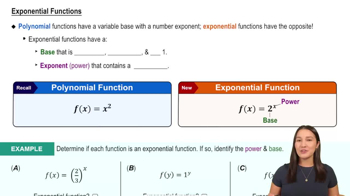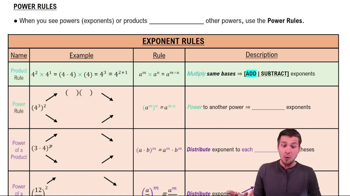Evaluate the following limits in two different ways: with and without l’Hôpital’s Rule.
lim_x→∞ (2x⁵ - x + 1) / (5x⁶ + x)
 Verified step by step guidance
Verified step by step guidance Verified video answer for a similar problem:
Verified video answer for a similar problem:



 5:53m
5:53mMaster Finding Differentials with a bite sized video explanation from Patrick
Start learning